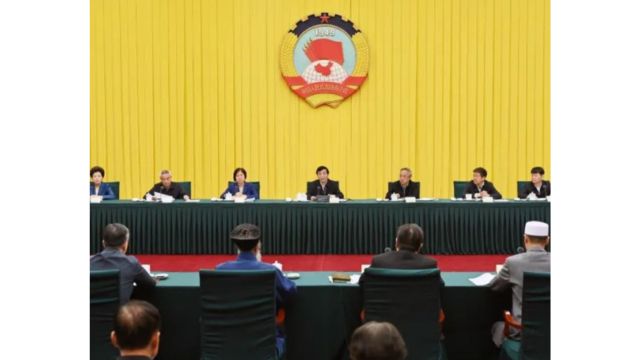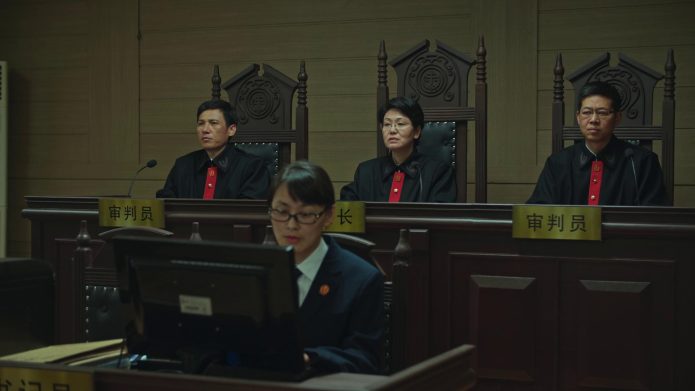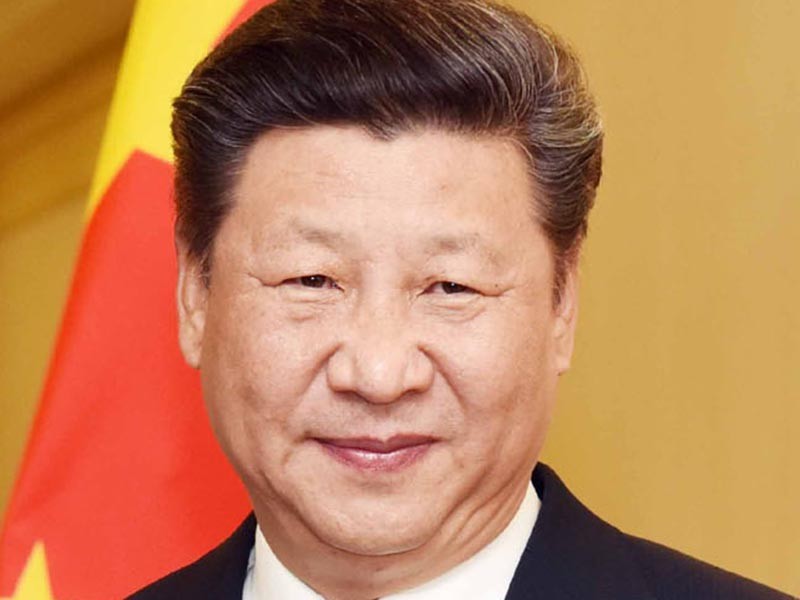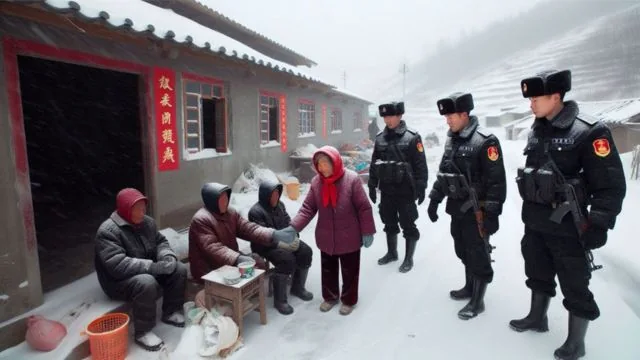The CCP’s top ideologist discusses Xi Jinping’s “unique scientific understanding” of religion and how it should be used to support the Party’s domestic and global aims.

When Wang Huning speaks, it is always a good idea to listen. Wang is currently the top ideologist of the Chinese Communist Party (CCP). He is a member of the Politburo Standing Committee and the Chairman of the National Committee of the Chinese People’s Political Consultative Conference. He frequently attends meetings between the CCP and the leaders of the five authorized religions. He seems to have a special interest in religion.
The 30th biweekly consultation meeting of the 14th National Committee of the Chinese People’s Political Consultative Conference was held in Beijing on April 24, 2025. It was a routine meeting, except that Wang decided to use the opportunity to give a speech on religion, which was reported by Chinese media and proposed as an object of study by the bureaucrats of the five authorized religions.
The premise of Wang’s speech is the promotion in the last years of “Xi Jinping’s Thought on the Rule of Law.” It is another subject on which Wang has spoken frequently. The name may be misleading for those familiar with the Western idea of the rule of law, i.e., that all should respect the law, including the government and the country’s leaders. Mindful of the fact that Karl Marx criticized this concept of the rule of law as intrinsically bourgeois, Xi Jinping maintains the same name but turns its meaning on its head. For China’s President, the “rule of law” means that the law is subject to, and should be interpreted following, the aims and interests of the Chinese Communist Party.
This premise is necessary, to understand Wang’s emphasis in his April 24 speech on the fact that there is a “rule of law on religious work” as well. Wang opened his speech with the bold statement that “the CCP Central Committee with Comrade Xi Jinping at its core has scientifically grasped the laws of religion and religious work.” He reaffirmed his persuasion that “religious work is of special importance in the overall work of the Party and the country.”
For this work to be effective, Wang said, the “rule of law on religious work” should be studied, enforced, and applied. Religions, he said, should learn to “think legally.” Following Xi Jinping’s peculiar understanding of the rule of law, this means that religions should “guide religious figures and believers to enhance their national consciousness, civic consciousness, and legal consciousness.” They should adopt Xi Jinping’s thought as “the foundation of religious work.” They should accept the “strict governance of religion,” a recently introduced policy calling for direct involvement of the United Front Work Department in managing religion, without relying only on the bureaucrats of the five authorized religions.
Wang concluded his speech by noting that religions should also support the CCP in telling the “Chinese story” internationally, including the “Chinese religious story,” by multiplying bilateral exchanges and participating in international religious conferences and organizations.
Source: Bitter Winter











.jpg)
